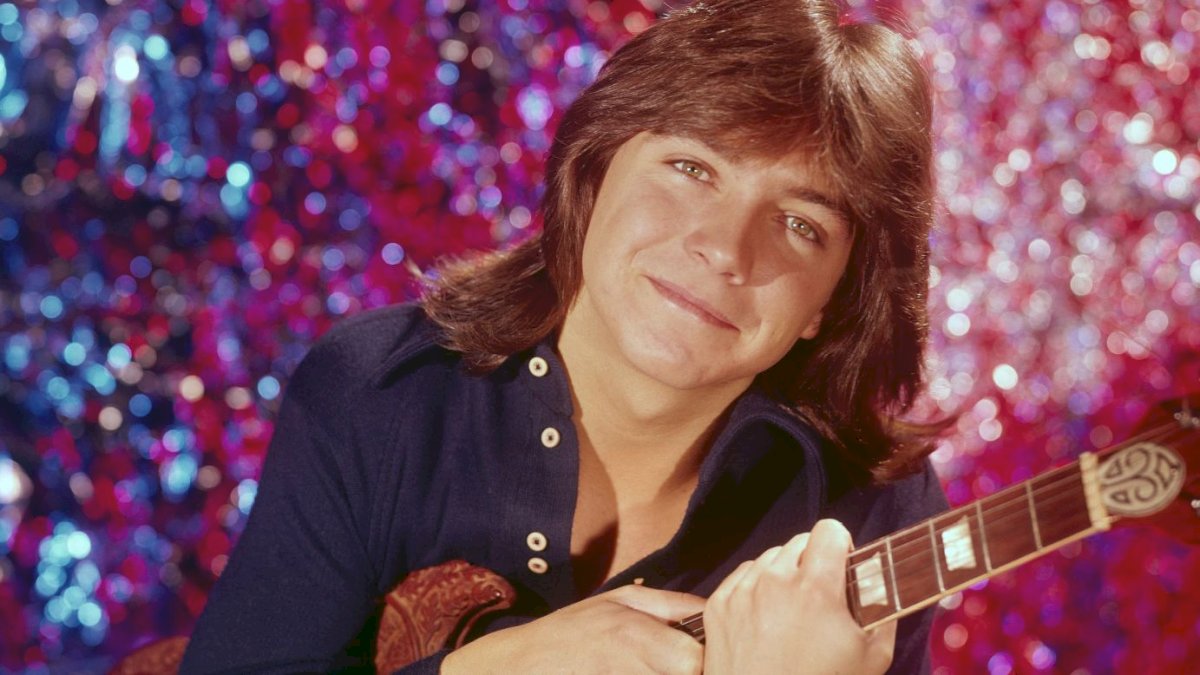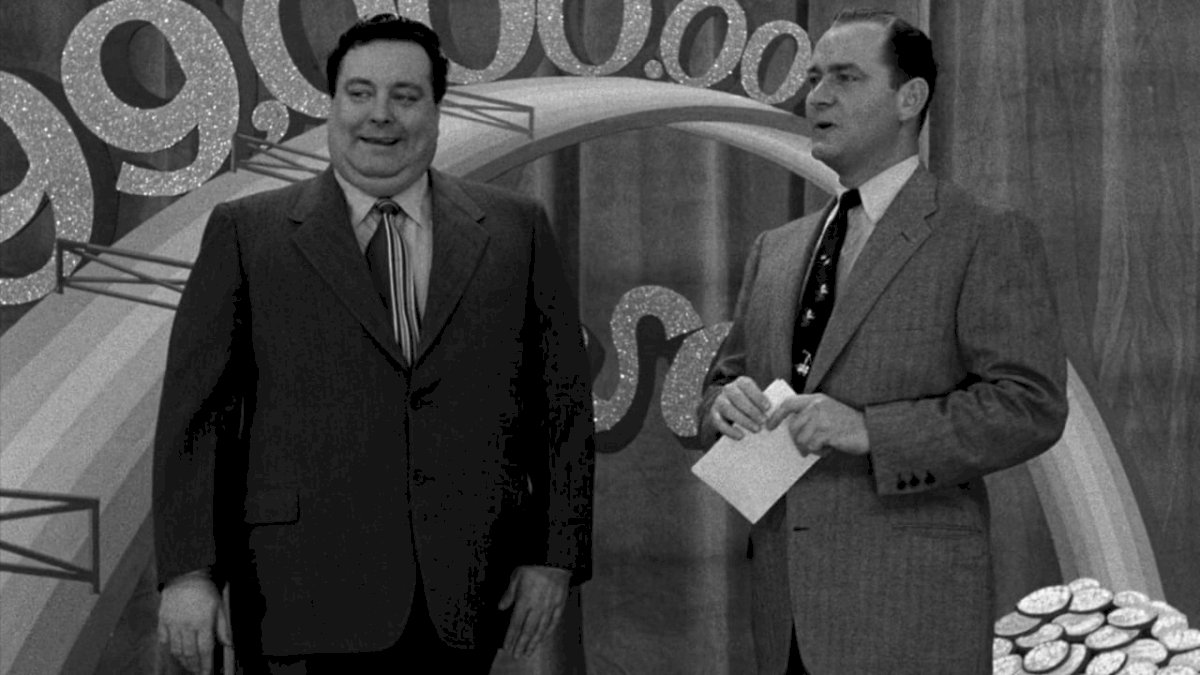"The Lucy Show," a television series that aired from 1962 to 1968, holds a special place in the history of American television. Starring the incomparable Lucille Ball and featuring a talented ensemble cast, the television show entertained audiences with its unique brand of slapstick humor and enduring charm. This article explores the legacy of "The Lucy Show," delving into its inception, the memorable characters, the impact it had on television, and why it remains beloved to this day.
(Watch the video below)

The Birth of "The Lucy Show"
"The Lucy Show" emerged as the second major sitcom project for Lucille Ball after her groundbreaking success with "I Love Lucy" (1951-1957). With her husband, Desi Arnaz, she had created Desilu Productions, a production company that played a pivotal role in shaping television history. When Ball and Arnaz divorced in 1960, Lucille found herself in a new phase of her life, both personally and professionally.
In 1961, CBS approached Ball with the idea of a new series, and "The Lucy Show" was born. It was an opportunity for her to continue her television career while also taking on a more active role behind the scenes. She served as an executive producer, giving her creative control over the show. Ball was determined to create a series that could stand on its own merits, distinct from "I Love Lucy."
The Characters and Cast
"The Lucy Show" featured a cast of beloved characters who added depth and humor to the series. While Lucille Ball was undoubtedly the star, she was surrounded by a talented ensemble, including:
Lucy Carmichael (Lucille Ball): Lucy Carmichael was the heart and soul of the show. She was a widow and a working mother who found herself in various comedic situations. Lucy was known for her charming, endearing, and often absurd antics. Her character was a testament to Lucille Ball's unparalleled comic timing and physical comedy skills.
Vivian Bagley (Vivian Vance): Vivian Bagley, Lucy's best friend and roommate, was a key figure in the series. Vivian Vance, who had previously portrayed Ethel Mertz in "I Love Lucy," brought her signature wit and humor to this role. The dynamic between Lucy and Vivian was a highlight of the show, and Vance's performance was a testament to her comedic prowess.
Mr. Theodore Mooney (Gale Gordon): Mr. Mooney, Lucy's no-nonsense boss at the bank, served as a recurring foil to Lucy's whimsical behavior. Gale Gordon's portrayal of this character added an extra layer of comedy to the show, as he struggled to keep Lucy in check.
Jerry Carmichael (Jimmy Garrett): Jerry Carmichael, Lucy's young son, was a charming addition to the series. His innocent perspective often led to humorous misunderstandings and situations. Jimmy Garrett's portrayal of Jerry was endearing and relatable to many parents and children.
The chemistry among these characters, along with their outstanding comedic performances, was a key factor in the show's success.
The Unique Brand of Humor
"The Lucy Show" was renowned for its distinct brand of humor, characterized by slapstick comedy, physical gags, and absurd situations. This style of humor was a continuation of the legacy of "I Love Lucy" but with a fresh twist. Lucille Ball's unparalleled talent for physical comedy was on full display in the series, as she fearlessly took on various roles and situations.
Some of the most memorable moments in "The Lucy Show" involved Lucy's attempts to prove herself in the workplace, often leading to hilarious mishaps. Whether she was getting locked in the bank vault, causing chaos at a supermarket, or trying her hand at various jobs, Lucy's comedic misadventures were a joy to watch.
Additionally, the show's humor extended to its witty dialogue and sharp one-liners, delivered with impeccable timing by the cast. Vivian Vance, in particular, was known for her quick wit and hilarious comebacks, making her character a fan favorite.
Impact on Television
"The Lucy Show" made a lasting impact on television in several ways:
Empowerment of Women: The show was a pioneering force in showcasing a strong, independent female lead. Lucy Carmichael was a working mother who faced various challenges, but her resilience and determination made her a role model for women in the 1960s.
Longevity and Syndication: "The Lucy Show" enjoyed a successful run and has remained popular through syndication. It continues to be broadcast on various networks, introducing new generations to the comedic genius of Lucille Ball.
Influence on Subsequent Comedies: The show's influence can be seen in many subsequent sitcoms, especially those featuring female leads. Its brand of physical comedy and witty humor set a precedent for future comedies.
A Platform for Lucille Ball: "The Lucy Show" allowed Lucille Ball to continue her illustrious career in television. She became a pioneering figure in the industry, not only as a talented actress but as a shrewd businesswoman and executive producer.
The Evolution of "The Lucy Show"
Over its six-season run, "The Lucy Show" evolved in various ways. The show initially followed a more traditional sitcom format, with Lucy working at a bank. However, as the series progressed, it underwent changes that kept it fresh and engaging for viewers. Some of the notable developments included:
New Settings: The show transitioned from Lucy's job at the bank to different settings, such as working at a Hollywood movie studio and even operating a talent agency. These changes allowed for a variety of humorous scenarios and guest appearances by famous actors and entertainers.
Recurring Characters: The introduction of recurring characters, like Mary Jane Lewis (Mary Jane Croft) and Eddie Collins (Eddie Applegate), added depth to the show's world and created new comedic dynamics.
Special Guest Stars: "The Lucy Show" frequently featured guest appearances by Hollywood celebrities, including John Wayne, Vivian Vance's return as guest star, and even a memorable cameo by Milton Berle. These appearances added to the show's appeal and helped attract a broader audience.
Richer Character Development: As the series progressed, the characters of Lucy Carmichael and Vivian Bagley were given more depth and emotional range. This evolution allowed for both humor and heartwarming moments, making the show more well-rounded.
The Enduring Legacy
"The Lucy Show" concluded in 1968 after a successful run, but its legacy has continued to thrive. Several factors have contributed to its enduring popularity:
Syndication: The show has been syndicated for decades, ensuring that it remains accessible to new generations of viewers. Its timeless humor and relatable themes continue to resonate with audiences.
Iconic Moments: "The Lucy Show" is filled with iconic moments that are still celebrated today. Whether it's Lucy stomping grapes in an Italian winery or attempting to conquer a towering loaf of bread, these classic scenes have become a part of television history.
Nostalgia: For those who grew up watching "The Lucy Show" during its original run, it represents a cherished part of their childhood. Nostalgia plays a significant role in the show's enduring popularity.
Lucille Ball's Legacy: Lucille Ball's influence on television and comedy is immeasurable. Her work in "The Lucy Show" is a testament to her talent and her impact on the entertainment industry.
Conclusion
"The Lucy Show" (1962-1968) is a classic sitcom that continues to capture the hearts of audiences with its timeless humor and memorable characters. Lucille Ball's comedic genius, along with the talented ensemble cast, created a series that remains a beloved part of television history. "The Lucy Show" not only entertained millions during its original run but also left an indelible mark on the medium, influencing subsequent comedies and empowering women in television. Its enduring legacy is a testament to the enduring appeal of great comedy and the timeless talent of Lucille Ball.


